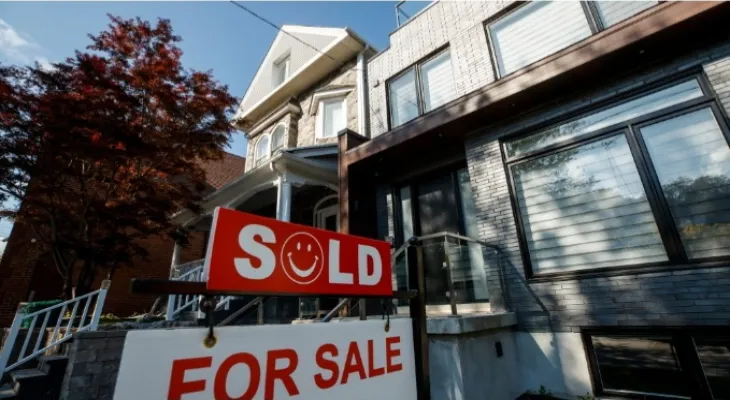Search here
Newspaper
Search here

Arab Canada News
News

Published: September 7, 2022
The latest interest rate hike by the Bank of Canada means some Canadians may end up spending a lot more on their monthly mortgage bills. James Laird, co-CEO of Ratehub.ca and president of CanWise Mortgage Corporation, told CTVNews.ca by phone on Tuesday: “The most urgent impact for variable-rate mortgage holders is absolutely that when the Bank of Canada issues this announcement, various mortgage lenders across the country — banks, credit unions, and trust companies — will all change their prime lending rate by the same amount.”
Analysts widely expect an interest rate hike on Wednesday by three-quarters of a percentage point to 3.25 percent. With the aim of fighting inflation, the increase follows a full one percentage point rise in July, which was the largest interest rate hike in Canada since August 1998. The Bank of Canada started raising interest rates in March, after they dropped to 0.25 percent during the COVID-19 pandemic. For those with variable-rate mortgages, the 3.25 percent interest rate could mean spending thousands of dollars more per year.
According to a mortgage calculator on Ratehub.ca, if you bought a home worth $630,000 with a 10 percent down payment and a variable rate over five years at 3.5 percent, paid over 25 years, the monthly mortgage bill would jump by $236 monthly, from $2,919 to $3,155, meaning you would spend an extra $2,832 annually on mortgage payments.
If the Bank of Canada chooses to raise interest rates by only half a percentage point to three percent, the same homeowner would still pay an additional $156 monthly, or $1,872 extra annually. The average home price in Canada in July 2022 was $629,971, according to the Canadian Real Estate Association, making it clear that those with more expensive homes should expect to pay much more than that.
Variable-rate mortgages have interest rates that fluctuate over time, compared to fixed-rate mortgages where the interest rate is set from the start. Laird explained, “If inflation continues, the Bank of Canada will need to keep raising interest rates, and in that scenario, fixed-rate is likely the better option.” Conversely, if inflation is controlled, Canadians can expect interest rates to decrease.
Laird added in the same context: “Then beyond that, if you think a recession might come in 2024, the variable rate will outperform because when the economy slows down, the bank essentially cuts the interest rate, so, high inflation equals high rates, and a slowing economy equals lower rates.”
Comments